Intel has been hinting at chip-to-chip optical interconnects for years. Under previous regimes, projects like Lightbender targeted HBM size and power chiplets for the 2025-2026 introduction. Now we have a new Intel 4Tbps optical chiplet.
Please excuse typos as we are doing these live at the conference.
Intel 4Tbps Optical Chiplet for XPU to XPU Connectivity Detailed
This slide observes that optical communication went from being used for long-range communication to much higher density shorter-range links.
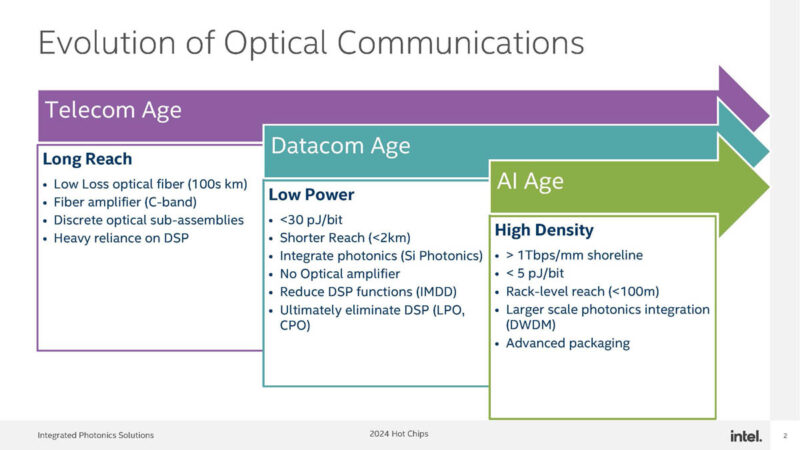
This chart shows the max reach and the density and efficiency.
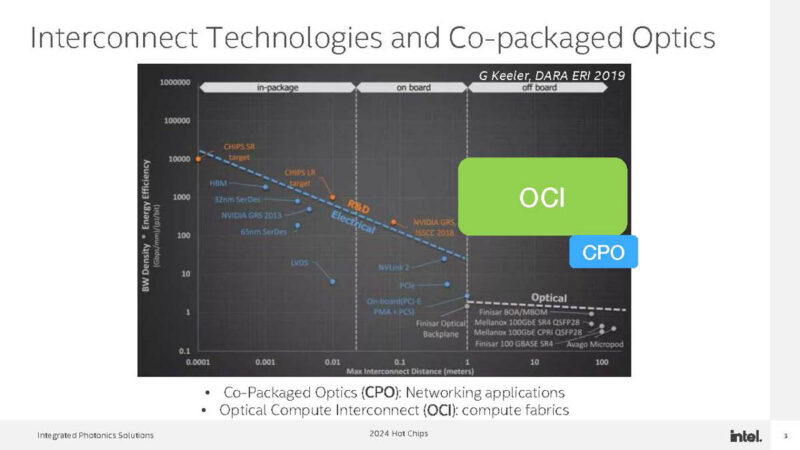
Here are the co-packaged optics use cases. We actually looked at the old 2020 co-packaged optic demo for networking in Hands-on with the Intel Co-Packaged Optics and Silicon Photonics Switch.
The newer uses are for the compute fabric interconnect and for disaggregation. There are physical socket and package constraints due to copper interconnects that optical networking can alleviate by expanding the link reach.
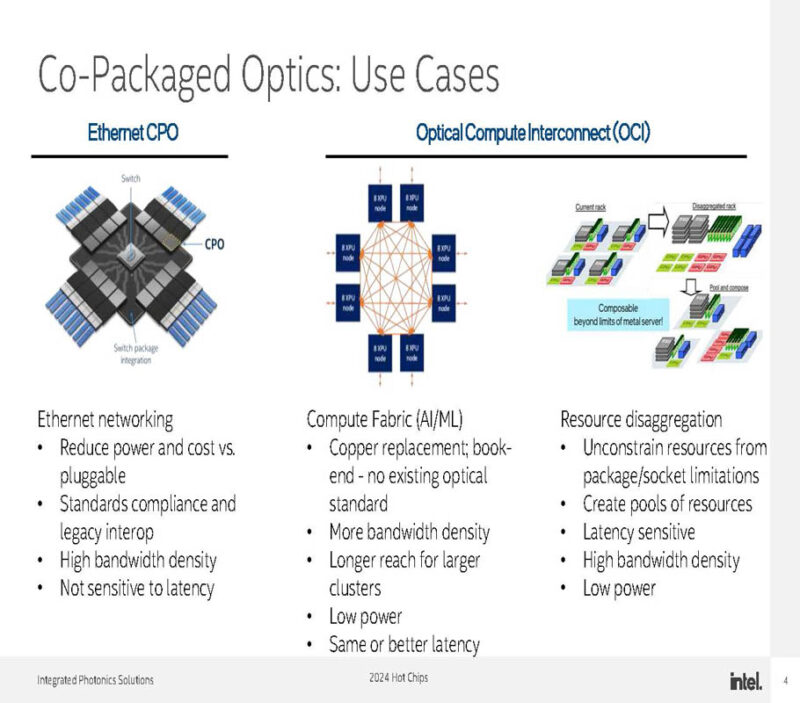
Here is are use cases of co-packaged optics for Ethernet and for compute. The CPO for Ethernet networking is still a work in progress, as we saw with the cool Broadcom AI Compute ASIC with Optical Attach yesterday.
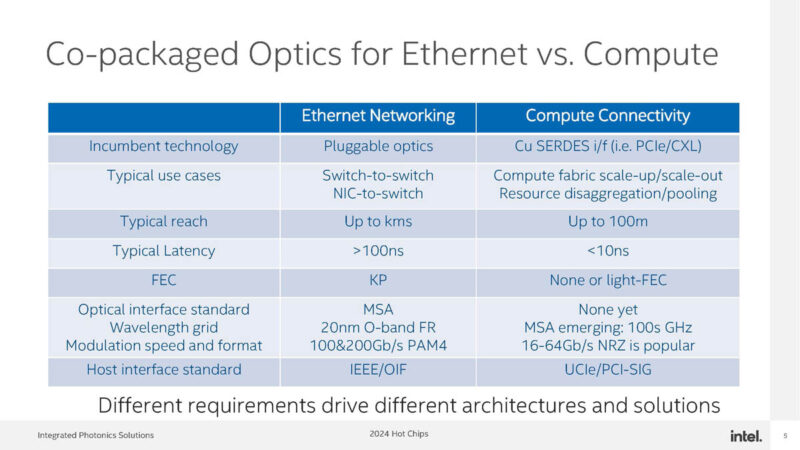
In summary, optical compute interconnects need to lower power, cost, and latency. At the same time it needs to provide more bandwidth and density.
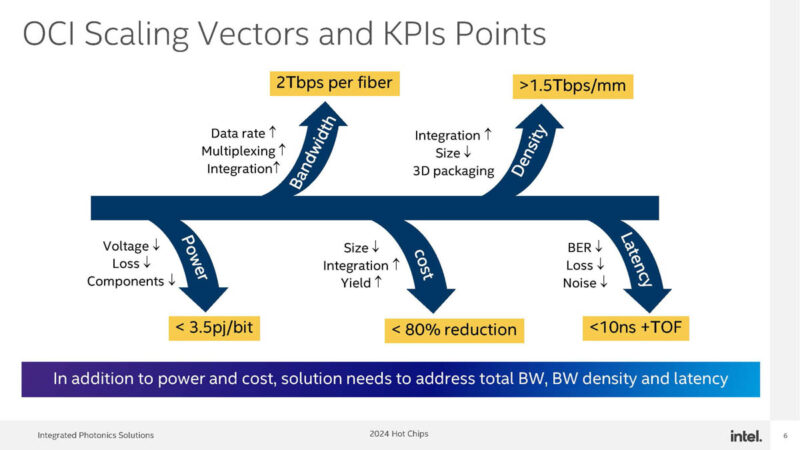
Intel has an OCI tile with an integrated PIC tile for optics atop a EIC tile for the electrical side. The connection to the host can be direct or through UCIe.
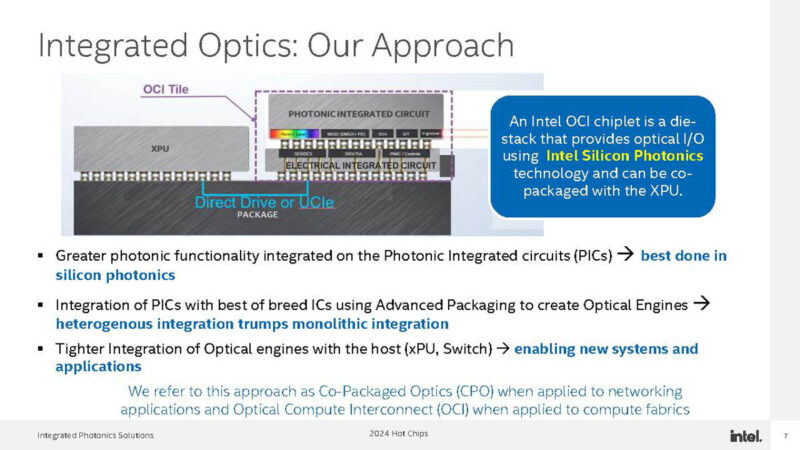
There are serial or die-to-die (slow UCIe) applications that can be used with the OCI tiles.
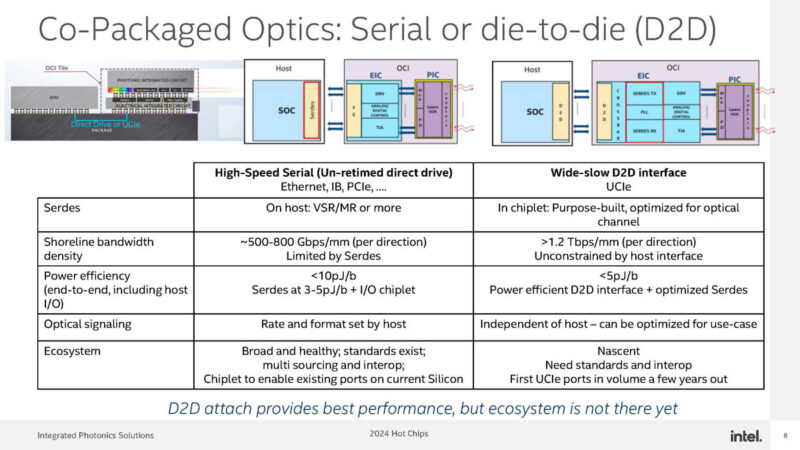
Here is a simplified model of what Intel is doing with its 4Tbps OCI.
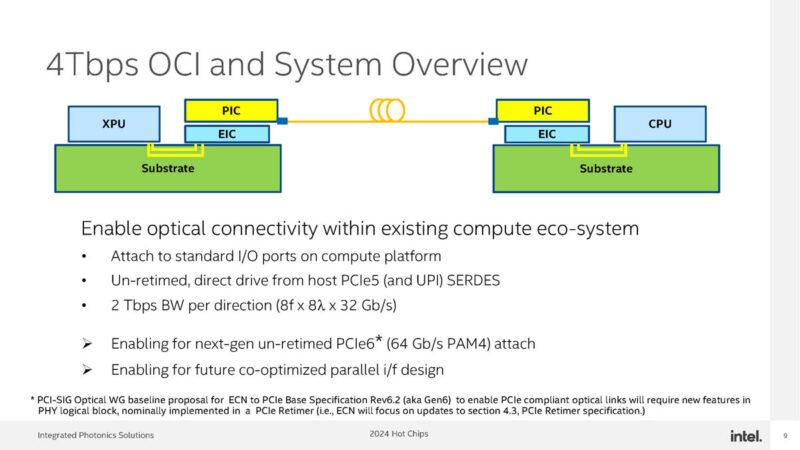
Here is a closer look at how this works. This is very similar to some of Intel’s other silicon photonics designs.
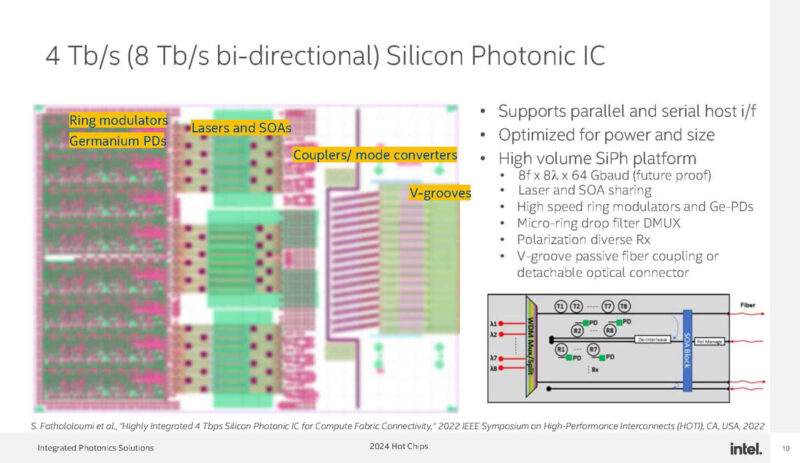
Intel is advocating an integrated laser. In many of the Ethernet CPO designs, the laser is a separate pluggable optical module. Intel says it has sold millions of these lasers, and so it has a lot of reliability data and test methodologies to do this at scale.
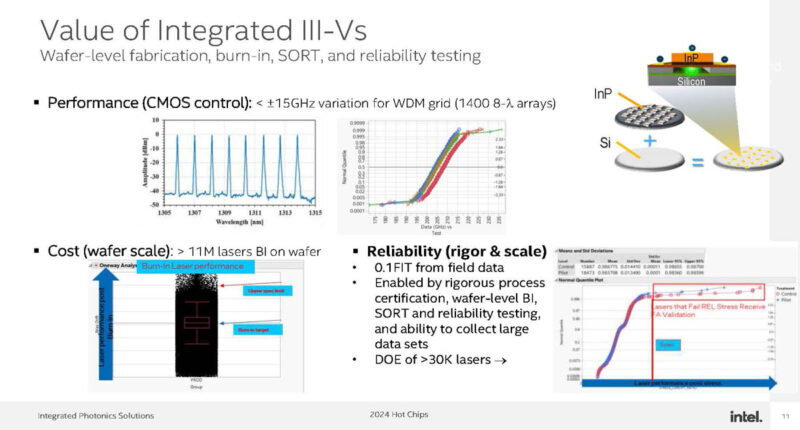
Here is a co-packaged optic with the OCI. The 64 lanes go to single mode fiber that connects to a fiber patch cord.
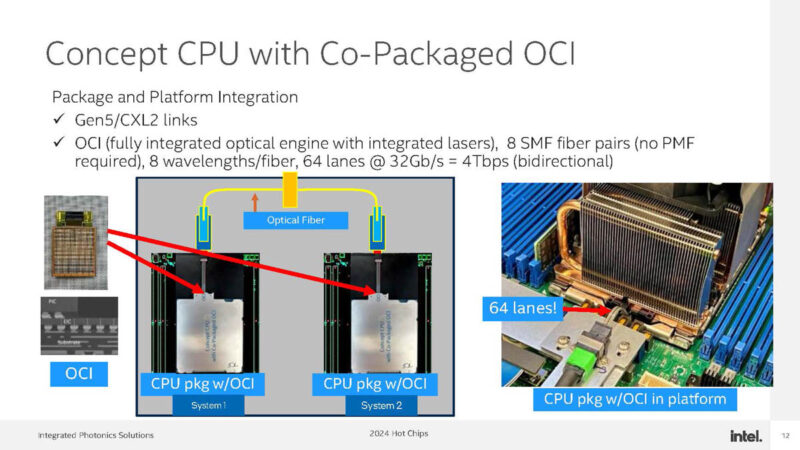
Here is a look at the laser performance.
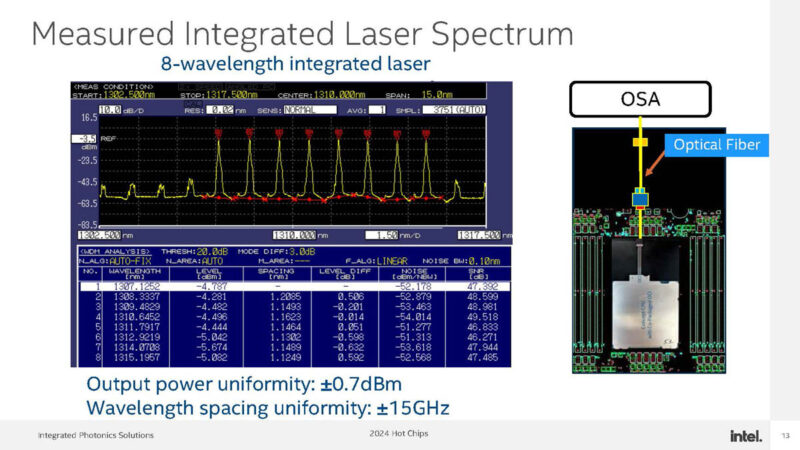
Here are the eyes of the optical links.
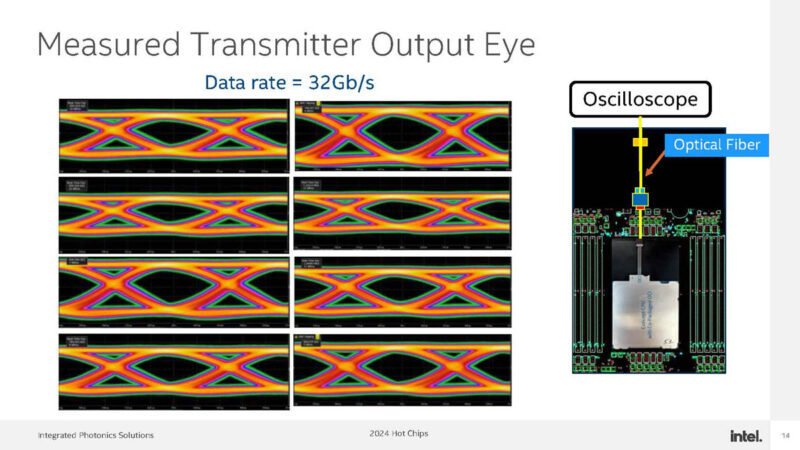
Two CPUs are being used with co-packaged OCI in each and communicating in this demo slide.
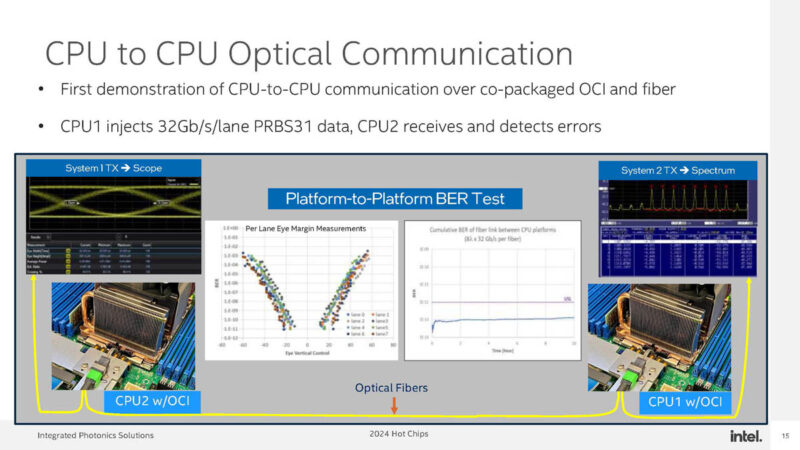
Here is the bandwidth scaling slide, with Intel looking ahead to scaling to faster baud rates as well as more wavelengths in the future. It can also scale by providing more fibers in the future.
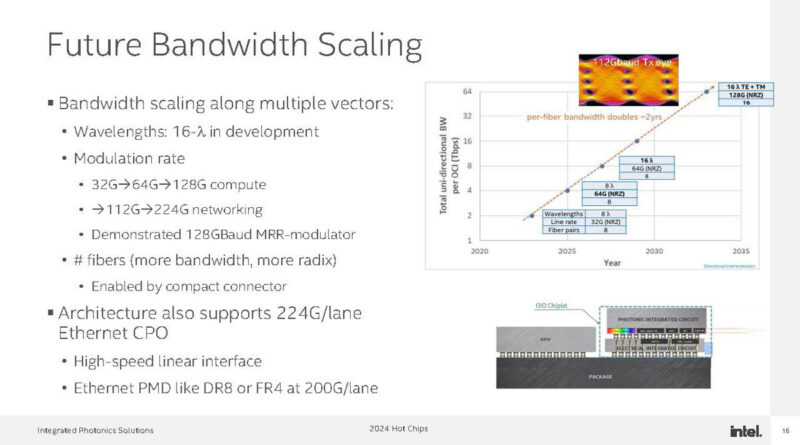
Here is the summary of the presentation.
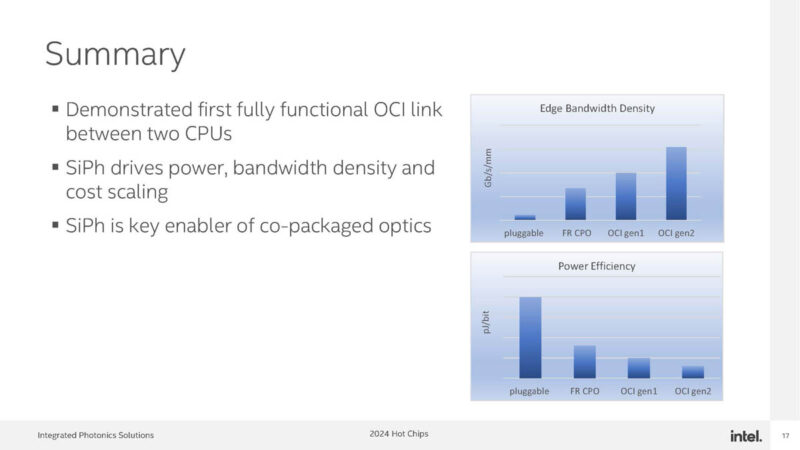
The basic idea is that switching from copper to optical will mean higher performance and longer reach links.
Final Words
We have been hearing about optical chip-to-chip interconnects for years. Hopefully, we get this sooner rather than later. At some point, copper interconnects are going to be too big of a limiting factor.

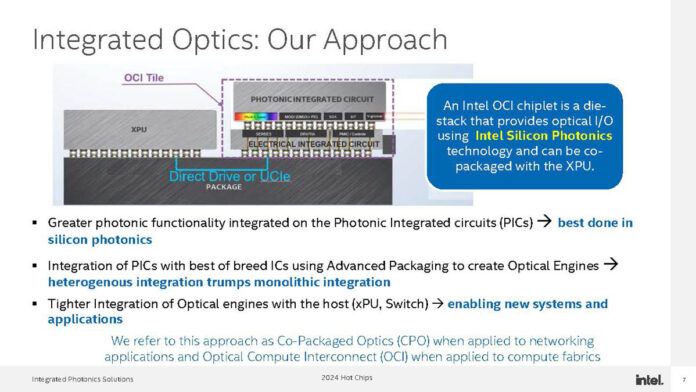



It is products like this that make me think AMD should bite the bullet and buy out Intel. Keep the networking and optical, keep the software, definitely keep the marketing dept, definitely keep the dept of unacknowledged product design/support dirty deeds. Sell off the CPU and GPU divisions, maybe somebody in the EU or South Korea wants them.
RE emerth: this product, a state of the art high reliability next gen device coming out of a decade of research, was made possible through the fab, material and process side working closely hand in hand with the design and product side, fab and design existing in one company steering a tight ship. Do you think AMD, who shed its fab long ago, would buy? I think what you meant to say was a rich daddy should buy (for many billions) and take it private, not AMD, a public company prone to the temperamental mood swings of quarter to quarter shareholders.
Re: emerth If you truly believe in this statement then you have no idea what you are talking about, and no idea how the semiconductor industry operates. A U.S. semi-conductor company like Intel does not get sold to EU or South Korea. The common Intel hate is becoming a trend, but what is funny is that most haters, like emerth here have no idea what they are talking about.
Re: emerth: I can’t tell if you’re joking? This world is so beyond pathetic I actually saw you’re comment on another site & article which stated “you had a point”. Which is scary for a million other reasons. AMD would never be allowed to buy Intel. As a matter of fact America would never allow any foreign competitor or otherwise to purchase them. They would simply keep bailing them out.
USA has set plans to become less dependent on others for silicon and Intel is a huge part of that plan. Yes they have had some ups and downs as of late the hate will die when they dethrone you’re beloved AMD again. This tech here though is a long time in the making. Insinuating their CPU division is worthless is, well, crazy. I’m not sure what they will do with the GPU division, but I’d hope stick with it.